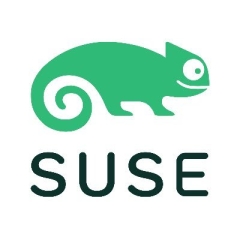What is our primary use case?
SUSE Linux is the best enterprise Linux distribution, period. It's my preferred laptop operating system.
What is most valuable?
I'm using the latest that they have which is a new innovation called MicroOS, which basically creates immutable infrastructure. It's a new trend in the Linux world and it is amazing. SUSE has been different from Red Hat with its YaST tool. They have a tool called YaST and it makes Linux server administration much easier as it's like a GUI, not a command line. It's a really amazing tool at it allows you to automate the administration of Linux servers. I love it. I felt like it's where the enterprise should be.
You can always have Oracle databases installed on SUSE. You can do the same on Red Hat. SUSE is a German company and they're very good with SAP. There is this database or ERP system based on this thing called SAP HANA. SUSE Linux is one of the few certified options to install SAP HANA on. If you're talking about enterprise-grade Linux, that can work on both Oracle and SAP and can offer it both Oracle and SAP workloads, SUSE is the best. I love it.
The stability, the performance, and the elegant design are all aspects I really like. Everything about SUSE I like, to be honest.
The product can scale.
The initial setup is very straightforward.
What needs improvement?
People usually don't go with SUSE, when they're outside of the European Union. They go with Red Hat, especially in the Middle East. They love the American thing. However, SUSE and Red Hat are pretty similar. They help each other, in the end. They have amazing products and pretty much have a lot of common product bases between them. There are only minor differences.
Red Hat has more packages that are available than SUSE does. I'd love to see more projects based on SUSE. They are doing a great job, however, it's not at the same level as compared to Red Hat. You can install almost anything on Red Hat or Ubuntu, however, not everything is straightforward or compatible with SUSE.
For how long have I used the solution?
I've been using the solution for six years at this point.
What do I think about the stability of the solution?
The product is quite stable and reliable. There are no bugs or glitches. It doesn't crash or freeze. the performance is good.
What do I think about the scalability of the solution?
The solution can scale if a company needs it to.
Not many people are using the product, even on the business side. Very few customers have SUSE. Very few understand the market, and therefore, very few have SUSE. I don't deal with it much in the market. However, at home, I'm running it on my laptop. My personal laptop is running on SUSE.
How are customer service and technical support?
I've never had to interact with technical support. I can't speak to how helpful or responsive they are.
Which solution did I use previously and why did I switch?
I'm familiar with Red Hat and Oracle as well.
I started my career as a web developer. I was really fond of cross-platform applications and cross-platform development. I've interacted with Mac operating systems. I've interacted with Windows, mainly. Nowadays, my personal favorite is an operating system called FreeBSD, which is not related to Linux at all. It's Linux-based, yet it's not Linux. It's different. Also, I have dealt with Android and iOS and that's mainly it. Windows, Linux, Macs, and the FreeBSD.
How was the initial setup?
The initial setup is straightforward. It's not as easy as Ubuntu. Sometimes you can run into hiccups with the drivers. Other than that, it's amazing. There's also a GUI, there is an interface. You just basically run your settings and click next, next, next, and you're good to go.
What's my experience with pricing, setup cost, and licensing?
There is no license. Usually, no Linux will charge for a license. They will get sued if they do so, as they are all running GPL software. GPL software would insist that you do not modify the code without sharing it with the public and anybody can use it. That's why it's not possible for them to charge money on the use.
What other advice do I have?
I'm using openSUSE 42.5, which is also based on SUSE. It's the same operating system, just under a different name.
I'd rate the solution at a ten out of ten. It's been great, overall. I'm more than satisfied with its capabilities.
I'd definitely recommend SUSE over any other Linux distribution. If you are a person who is learning Linux, very new to Linux, I would say go with Ubuntu. If you like American approaches, I will tell you to go with Red Hat. That said, SUSE is the best enterprise Linux out there, period. Red Hat does have an amazing company as well, and it's doing great contributions. However, my heart tends to always fall towards SUSE and how their product is really not just stable, but also user-friendly in the server world. In Red Hat, you have to know the command line. In SUSE, it's not a must. You do, however, there's a lot of things that can be automated without you having to write scripts.
Disclosure: My company does not have a business relationship with this vendor other than being a customer.













